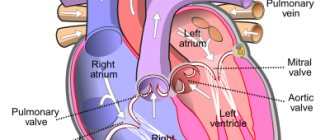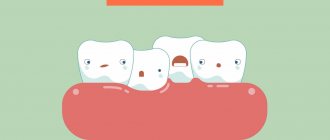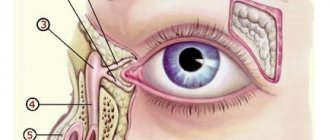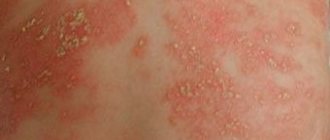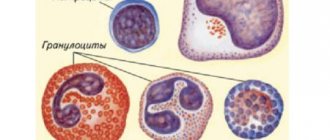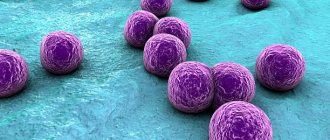Colic is a natural phenomenon that occurs in all children from infancy. Symptoms of colic can appear in the first weeks of a baby’s life and can prevent parents from sleeping for a couple of months. But you shouldn’t worry about colic as a disease, because this phenomenon occurs in every child, regardless of the baby’s health. What are the causes of colic, how to recognize them and help your baby?
Causes of colic
There are many reasons for the formation of colic in a baby’s intestines, but there are also primary sources - the main causes of the disease. Most often, colic appears due to:
Features of the digestive system
All organs of the baby’s gastrointestinal tract begin to become familiar with food and new working conditions. The circulatory system begins to adapt to living conditions, and muscle tissue to heaviness and new load. Despite the fact that nature has provided the most optimal nutrition for the baby - breast milk, the child’s stomach and intestines also have to get used to it. Contractions of all internal organs, movements of the baby, the balance of digestive enzymes and even breathing patterns - all this affects digestion. Immaturity of the gastrointestinal tract is the root cause of colic, causing discomfort in the intestines, spasms and severe pain for the baby due to increased gas formation. Further, problems with defecation and severe belching may appear. These symptoms are completely normal, but babies are especially sensitive to them. When the digestive system fully adapts to food and the digestion process, colic will no longer bother the baby.
Attaching to the breast
Very often, colic also occurs from improper attachment of the baby to the mother's breast. Because of this, the baby may latch onto the breast incorrectly and inhale a large amount of air through his mouth during feeding. This can cause bloating and intestinal colic.
Mother's nutrition If the child is breastfed, you should take care of your nutrition. There are special diets for nursing mothers, and they will definitely come in handy if the baby often suffers from colic.
Baby's diet It is worth ruling out the possibility of a violation of the diet in order to find out the cause of colic. This point is a bone of contention among many pediatricians, because some believe that feeding must be according to a schedule, while others are of the opinion that feeding should only be done at the request of the baby. Only the child’s mother can determine the correct option. You can adhere to a specific strict regimen and feed every three hours, monitoring the baby’s condition, or change the strict system to feeding on demand. If there is no change in condition, the cause is excluded.
Formula for feeding If the baby is bottle-fed, the cause of colic may be the formula. You need to change the mixture to a different brand and composition or carefully follow the rules for preparing the mixture.
Characteristic features of the baby Often, colic manifests itself as a reaction to the baby's emotions - crying, anxiety and severe restlessness. Strong crying, intensive swallowing of air and excessive nervousness can cause frequent occurrence of colic in a newborn.
About allergies
Allergy to cow's milk proteins (CMPA) is currently a common occurrence in young children. Their presence in the mother's diet or infant formula can lead to impaired motility and inflammation of the intestinal mucosa. Therefore, for a period of 2 to 4 weeks, it is recommended to exclude dairy products in any form from the mother’s diet (from whole milk to fermented milk products, cheese and powdered milk in industrial products).
In the case of mixed or artificial feeding, it is better to replace the usual formula with a specialized one, for example, Nutrilak Premium Hypoallergenic, in which not only the protein is changed, but also contains oligosaccharides and probiotics (bifidobacteria B. Lactis (BB-12)TM and lactobacilli L.rhamnosus (LGG )®).
Symptoms of colic in infants
How to identify colic in an infant and not confuse the symptoms with more serious illnesses? It is worth focusing on the following signs:
- severe bloating, rumbling;
- the child calms down only after the gases have passed;
- severe crying;
- colic appears from the tenth day of life and can bother the child until the fourth month;
- the baby curls his fingers and toes;
- the stool remains familiar and unchanged;
- the baby presses his legs to his stomach;
- the face turns red when crying;
- Colic occurs most often in children who quickly gain weight.
These simple symptoms will help parents distinguish colic from diseases of the digestive system and choose the right treatment for colic. The best option would be to consult a specialist who will recommend effective methods and high-quality effective carminative drugs.
How to help a child with colic?
Many parents worry about how to take care of their baby during colic and alleviate his condition. There are some simple but very effective techniques that effectively relieve pain when colic occurs and speed up the release of gas. Simple tips on massaging the abdominal wall and correct positioning of the baby will help you quickly cope with colic:
- Stroking the tummy, gently moving clockwise.
- Place a warm palm on the baby's stomach and lightly rock the baby in your other hand.
- Attach the baby to the breast when colic appears, rocking slightly. This will help relieve colic, relax the baby and calm him down.
- Place a warm diaper on the tummy, pre-heated on a radiator or ironed.
- Do simple but effective gymnastics-massage of the abdominal wall, pressing your knees towards the baby’s tummy. It is effective to press your right knee towards your left elbow and vice versa. This will help relax the muscles and provoke the rapid release of gases.
- Do the Airplane exercise. The baby should be placed on his tummy and slowly rocked in different directions. This should be done very smoothly and carefully. This exercise will not only help calm the baby and relieve colic, but also greatly amuse the child when he begins to be capricious.
- Tiger pose on a branch will help relieve colic and calm the baby. A great massage position for dads with strong arms. It is worth bending your arm at the elbow and laying the child down - belly down. The baby's head should be in the palm of your hand. By gently shaking your hand, you can calm your baby and overcome colic.
- A warm bath with herbal decoctions will help to effectively remove colic and alleviate the condition of the baby. This method is especially relevant if the child loves to swim. You need to organize a bath with a warm decoction of chamomile or chamomile, which will perfectly calm you down and set you up for a healthy sleep.
- A gas tube is the last option and is only suitable for severe and painful colic. This method is the most effective, but the baby quickly gets used to the device and will no longer be able to do without it. In addition, such a device can harm the anal mucosa. If parents nevertheless decide to resort to this method, it is worth lubricating the tip of the device with baby cream or Vaseline and inserting it two centimeters, but no more. This method may cause deficiencies.
Colic medications
For severe and very painful colic, special medications are also applicable, but only after the appointment of a specialist. It is the doctor who will competently select the optimal drug for the baby. The following list of effective drugs is recognized as the most effective drugs:
- Capsules or suspension Espumisan L Refers to effective carminative drugs. There are three types in the Espumisan line, but you should pay attention only to the medicine for newborns. Espumisan can be given to a child from the first day of life. The product will effectively relieve colic and help remove gases. The product has a pleasant banana taste, so giving it to your baby is not a problem at all. The first dose is 25 drops and can be mixed with breast milk or given alone.
- Suspension Sab Simplex The drug removes and destroys gas globules and carefully removes them from the baby’s body during intestinal peristalsis. The product will perfectly eliminate colic and is absolutely safe for the baby.
- Bobotik drops The advantage is that the drug is not absorbed into the gastrointestinal tract and comes out unchanged, while perfectly relieving the baby of colic. The drug does not contain sugars and is suitable for addition to formula or breast milk. One bottle contains 50 doses of medicine, so the product will last for a long time.
- Plantex powder The product is designed to combat colic and is extremely popular among parents. The drug is made from fennel fruit and works on the principle of dill water. The drug perfectly accelerates the release of gases and improves gastrointestinal motility. The advantage is that it regulates the digestive system and increases the baby’s appetite.
- Infacol suspension Facilitates the release of gases from the intestines, relieves spasms and reduces the baby’s pain. The drug does not have a systemic effect and is excreted unchanged from the child’s body. Can be taken from the first weeks of life. The course of the drug is determined by a specialist.
- Bebinos Drops Has a pronounced antispasmodic and carminative effect, helps with flatulence, colic and pain. Developed on the basis of plant extracts, in particular fennel and chamomile. The drug has an anti-inflammatory effect and relieves pain, carefully normalizing the functioning of the gastrointestinal tract. The product improves digestion and peristalsis.
- Bifiform baby suspension Eliminates intestinal colic and fights pathogenic organisms. It is a means of heavy artillery. The suspension perfectly kills microbes, but at the same time preserves bacteria beneficial to the microflora. The product reduces the risk of acute diarrhea in the baby.
- Linex capsules Restores the child's intestinal microflora, eliminates pathogenic microorganisms. The drug helps restore normal bowel function and ensures optimal action of intestinal enzymes. The drug takes care of the intestinal microflora and the normal balance of lactic acid bacteria in the gastrointestinal tract.
- Baby Calm Emulsion The product is based on vegetable oils, in particular anise, dill and fennel oil. The product acts on the principle of dill water and perfectly eliminates colic in the baby. This effective remedy for babies helps eliminate flatulence and normalize microflora. The advantage of the drug is its mild antispasmodic effect. This emulsion has a pronounced anti-inflammatory effect and antibacterial effect. Provides carminative effect.
Parents should remember that only a doctor can prescribe the appropriate drug and treatment regimen for the baby. It is worth excluding not only intolerance to certain drugs, but also allergies to components. Also, the doctor will be able to determine the optimal dose of the drug for a particular baby in accordance with the weight and age of the child.
Medicines against colic. Auxiliary products and drug therapy.
Gas tubes and microenemas
If all your previous actions have not brought relief, we use auxiliary means - gas tubes and microenemas. They help get rid of excess gas in the abdomen, which reduces pain. Modern gas outlet tubes have an insertion limiter - the tip of the tube is thickly lubricated with Vaseline oil or cream and inserted up to the limiter. If the effect is insufficient, use an enema with 10-15 ml of clean water at room temperature (take the smallest syringe, don’t forget to lubricate the tip and insert shallowly 1 cm). Kabrita recommends the Windi straw.
Drug therapy
Among the means of drug therapy for colic, simethicone preparations - antifoam agents - are widely used. Simethicone helps to collapse gas bubbles in the intestine, reducing bloating. Herbal remedies based on fennel, mint, and dill also reduce spasms and gas formation. The history of their use is the longest. But be careful with herbs, if you have allergies in your family, your child may also have an allergic reaction to such remedies.
Probiotics
Some probiotics have an analgesic and preventive effect on infant colic. Probiotics containing reuteri have shown good effectiveness.
How to prevent colic
There are many methods to prevent colic or its frequent occurrence. Some practical tips will help you effectively and efficiently minimize the occurrence of colic. In particular:
- you need to put the baby on his tummy before feeding;
- The baby should lie on a hard surface, for example, a hard mattress. This will relieve tension in the abdominal muscles and prevent the occurrence of colic;
- After feeding, it is recommended to hold the baby in an upright position and wait for the appearance of a burp. This method will help to painlessly remove gases from the baby’s body;
- Dill water is one of the ancient methods of ridding a child of gas. This water should be given after each feeding of the baby. It’s very simple to prepare – you just need to steep half a spoonful of seeds in a glass of boiling water. It is worth giving your child only slightly warm dill water.
Diet for mom
A proper mother's diet will help prevent possible gas formation and flatulence in the child. Many products are absolutely safe for the body of both mother and baby, but there are also aggressive ones that often cause unwanted colic.
A mother who feeds her baby milk for up to four months should completely exclude the following foods from her diet:
- Cabbage of any kind;
- Coffee and tea;
- Tomatoes;
- Dishes with hot and fiery seasonings;
- Onion;
- Nuts;
- Products with caffeine;
- Tomatoes;
- Cow's milk;
- Corn
- Sour cheese;
- Legumes.
If the child's colic is caused by any of these foods, then after a two-day diet they should completely go away.
No matter how parents worry about colic, this is a completely normal occurrence for infants. You should take this calmly and help your child cope with the disease using simple and effective methods. In case of complications and extreme painfulness of the process, the best option would be to contact a pediatrician, who can competently prescribe an anti-colic medication exclusively for your baby - based on age and weight. Proper treatment will solve the problem and prevent the worsening of flatulence.
Why? What can influence their appearance?
It is fundamentally wrong to talk about the immaturity of a child’s gastrointestinal tract if he is full-term and mature for his age. His body is formed exactly as much as necessary. It has been like this for centuries, millennia. Each age period and each organism has its own characteristics, and infants also have them.
Science does not know the true causes of infant colic.
There are only theories and guesses, which mostly come down to the intestines. There are studies that show the role of the nervous system and environmental factors. Predisposing factors
1. Smoking in the family 2. Caesarean section, use of antibiotics 3. Food from the mother’s diet:
- strong broths (meat and fish)
- artificial colors
- flavorings
- milk and dairy products
- fresh vegetables and fruits
- chocolate
4. Maternal-infant distress 5. Feeding technique 6. Daily routine
Ways to implement colic
- swallowing air (aerophagia)
- excessive gas formation
- food intolerance (allergy)
- lactase deficiency
- intestinal dysbiosis
There is not just one single reason. Most often there are several of them, and therefore the approach to the solution should not be one-sided, but comprehensive, with the involvement of all family members!

